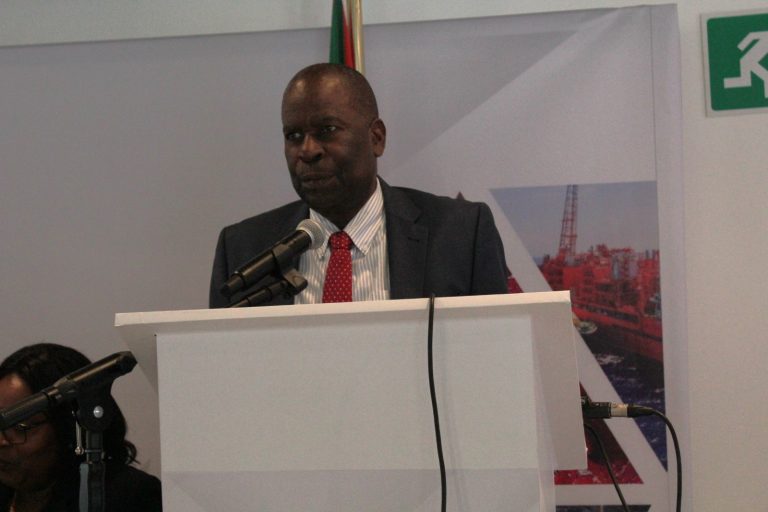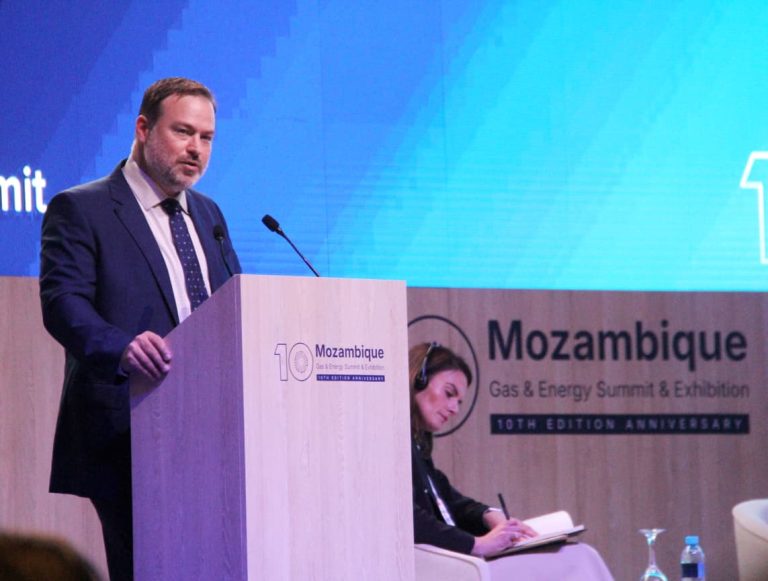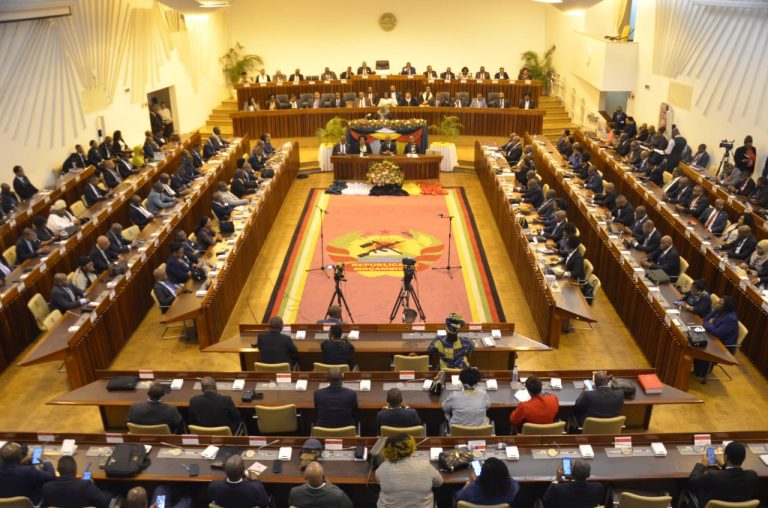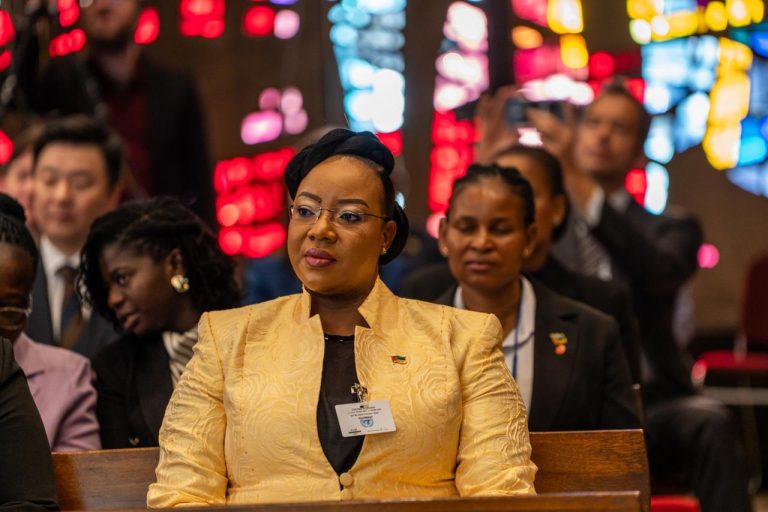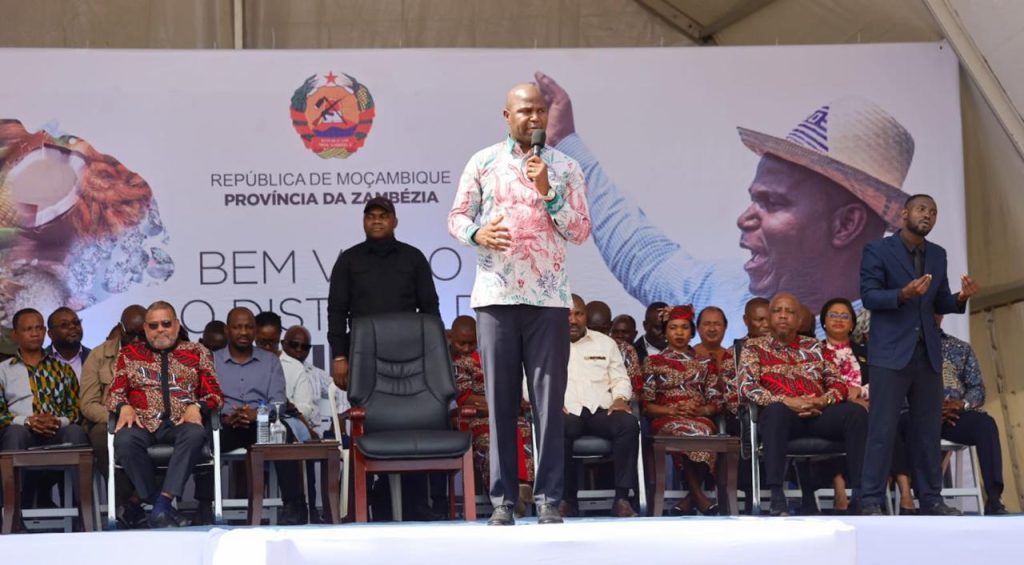
Presidente da República, Daniel Chapo, dirige comício popular em Quelimane, província da Zambézia
Maputo, 25 Jul (AIM) – Mozambican President Daniel Chapo has again insisted that the headquarters of the Mozambican parliament, the Assembly of the Republic, must be moved from Maputo to the central town of Mocuba, in Zambezia province.
Speaking on Thursday, at a rally in the Zambezia provincial capital, Quelimane, Chapo said Mocuba has been chosen, “not merely because of its geographically strategic location, but because of its symbolic nature. It is there that paths cross, and the country embraces itself. It is the point where the north, centre and south of the country all meet. It makes complete sense that Mocuba should be the place where the great national decisions are taken”.
Until Chapo’s election last year, the ruling Frelimo Party had not proposed moving the Assembly out of Maputo. Instead, the proposal, apparently accepted by the opposition parties too, was to shift the Assembly headquarters to the municipal district of Katembe on the southern bank of Maputo Bay.
Chapo’s proposal simply jettisons the idea of building the parliamentary headquarters in Katembe. His idea is for “a modern and inclusive parliamentary citadel” in Mocuba “with infrastructures of the latest generation to accommodate the Assembly, its working offices, centres for legislative research, residential areas for deputies and public servants, as well as spaces for interaction with civil society, and digital platforms for the promotion of participatory democracy”.
This project will be implemented in phases, and with the support of public-private partnerships, said Chapo. The plan includes a “national institute of parliamentary studies”, with the aim of bringing the Assembly closer to the public.
The main objection to this proposal is that the current parliamentary headquarters in central Maputo is perfectly adequate. It is a converted cinema which has served parliamentary purposes very well for more than 30 years. Chapo did not say how much he expects the “parliamentary citadel” in Mocuba to cost.
Mocuba has no airport, and so the parliamentary deputies must either fly to Quelimane, or make their way by road to Mocuba.
Chapo also wants other cities to become “thematic capitals”, each playing a specific role in the structure of the Mozambican state.
He argued that so far decentralisation has not gone beyond the delegation of administrative powers. Chapo believed that decentralisation should be “geostrategic, functional and symbolic, in order to combat excessive centralism, reduce regional inequalities and strengthen national cohesion”.
He argued that the establishment of “thematic capitals” would “help relieve the pressure on Maputo, stimulate the growth of other regions, and encourage a plural, inclusive and inter-linked national identity”.
This would be “a paradigm shift”, Chapo claimed. Each thematic capital “should become a pole of excellence in its area, receiving priority investments, specialist universities, centres of innovation, and their own international cooperation agenda”.
“Our country is vast and diverse”, said Chapo. “We have to use this diversity as a strategic advantage. By valuing each province with a specific purpose, we are building a more balanced, more efficient and fairer Mozambique”.
(AIM)
Pf/ (503)



